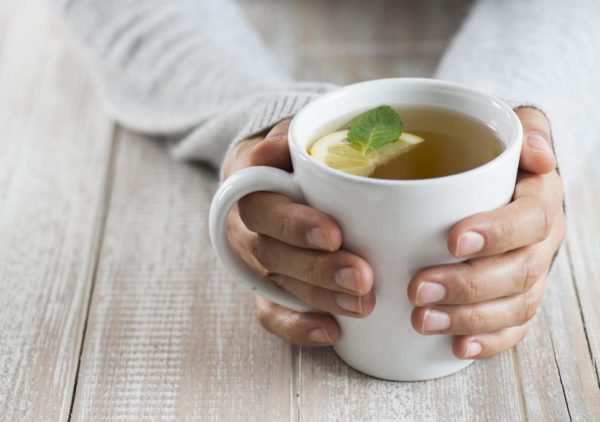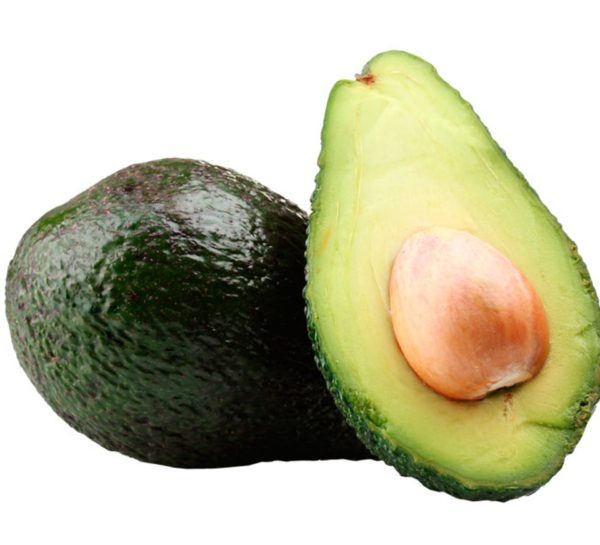Several readers told me that chronicle will be immortal? It is interesting, but it would be nice to have a synthesis of concrete advice that gives this article, given the size of it and the chronicle. This is done with these 10 things that can make a huge difference in your life if you apply them every day because there is nothing more powerful to build something than doing it brick by brick, day after day; one day we look back and contemplate astonished the building of our lives, made up of all these bricks, these days we have accumulated. Taking care of our health every day we ask ourselves every day a brick in the building of our long life full of health. Here are ten habits that are as many bricks to ask each day. Follow the guide!
1. Limit your maximum intake of red meat
It is best to avoid in any case red meat, even skinny because cattle are generally saturated with hormones and antibiotics used by factory farms, partly because it takes longer to raise a cow or a pig a chicken. Furthermore, this meat is often high in cholesterol, and there is a risk of infection from prions, due to mad cow. At worst, eat red meat bio, but try to focus on the white meat and fish rich in EPA/DHA include salmon. Take organic if you can.

2. Emphasize the good fats
the fats Omega 3 and Omega 6 instead of saturated and unsaturated fats bad:
- Nuts
- Fish rich in EPA and DHA include salmon (wild salmon contains more than farmed salmon) and having low levels of mercury.
- Olive oil extra virgin (this last point is very important)
- Flax seeds and linseed oil pressed naturally
- Vegetables
- Tofu
- Lean meats, especially white meat (chicken, turkey). Obviously, it is best to select high range poultry free of hormones and antibiotics.
And definitely avoid:
- Saturated fats from fatty meats, butter, milk, and other animal products
- Oils commercial kitchen (still prefer their olive oil extra virgin)
- Hydrogenated fats margarine or vegetable fat, and almost all commercial baked goods
- Fry fryer: It is best to blow high heat using the olive oil extra virgin, and the best is to put water in a wok, add a small amount of oil, and cook for a short time at medium or moderate temperature.

3. Chew is very important for our health
Indeed, swallow big lumps before they have been properly shredded and mixed with saliva causes the gut to secrete higher amounts of powerful digestive enzymes, which can cause excess gas and bloat, and with time harm the stomach. So, take your time when you eat.

4. Eat 5 fruits and vegetables a day
This is the advice given by the official flagship program of the Ministry of Health, Eat Move rightly.
The benefits of eating fresh vegetables, natural and low in starch are endless: they contain a myriad of valuable nutrients and fiber and have a low glycemic index and caloric density. It should however be careful not to overcook them: too much cooking would make them lose their vitamins, their phytochemicals, and other nutrients. Ideally a slight steaming, or a raw consumption for some of them.
Please note, this is 5 servings of fruits and vegetables: radish and eat 3 two grapes obviously not enough! And it is entirely possible to eat 10 servings: 5 is the recommended minimum. Tip: Instead of counting the number of fruits and vegetables you eat, which can be painful, just think to ensure that half of every meal should consist of vegetables or fruit. Think well consume colored products: By eating a whole series of naturally colored vegetables, you get a whole series of vital nutrients.
You can also drink freshly squeezed vegetable juice: putting fresh vegetables, natural and low in starch in a juicer, you get one of the healthiest drinks that are low in calories, rich in vitamins and minerals. The best vegetables for this are celery, cucumber, and fennel, and you can use small amounts of red and green leaves of Roman, endive, escarole, spinach, parsley, or kale. Avoid sugar-rich vegetables such as beets or carrots.


5. Drink tea instead of coffee
Many tea ingredients are good for health. A recent study published in the Journal of the American Heart Association found that drinking two cups of tea a day reduced the risk of death from myocardial infarction in the remarkable 44% (Tea consumption and mortality after acute myocardial infarction). This finding applies to black tea and green tea, not herbal teas. The tea also contains L-threonine, reducing cortisol levels, and promotes relaxation. The most beneficial tea is green tea, with extra antioxidants that reduce the risk of heart disease or cancer. Try to take your tea without sugar (see next tip).

6. Strongly Reduce your sugar intake
When we consume food containing lots of sugars, blood sugar rises rapidly and pancreas responds by secreting insulin immediately, which regulates glucose, by contributing to the pass into cells. This keeps blood sugar under control, but these temporary insulin spikes often exceed their objectives and bring blood glucose levels too low, leading to a more intense need for sugar – a vicious circle!
Over time, continual abuse of this cycle that the body cells develop lower sensitivity to insulin. This insulin resistance is a major cause of the metabolic syndrome, and can also lead to type 2 diabetes, which means that whatever the amount of insulin produced by the body, blood sugar remains too high.
Many problems are caused by excessive blood glucose as an inhibition of the immune system, favoring the growth of pathological cells such as fungal infections and cancers, competition with vitamin C, which follows the same transport system, and who is thus hampered in its mission to fight against infections and the development of body tissues, etc. We must, therefore, avoid as much too high-sugar foods and favor those with a glycemic index (GI).


7. Eat Anticancer
To prevent the maximum development of cancer,
- Drink vegetable juice: start your day with a drink of 225 to 350 ml of fully depressing vegetable juice as part of your breakfast. Mix the juice of a few cucumbers, broccoli, kale, cabbage, a carrot (but not more to avoid excess sugar), and other green vegetables. This will bring you almost half your needs before even leaving your home. obviously, try to use organic vegetables.
- Adopt the Mediterranean diet: low in red meat and giving priority to whole grains, fish, and fresh fruit and vegetables, has been associated with numerous benefits, including a reduced risk of cancer. The Mediterranean diet also uses generous amounts of extra virgin olive oil, fresh tomatoes, tomato sauce, and cooked tomatoes.
- Avoid Satan white: white sugar. Cancer cells consume very eagerly this sugar and can inhibit the formation of cancer by avoiding foods whose glycemic load is high.
- Have a physical activity: physical activity was associated with a lower incidence of cancer, in contrast to a sedentary lifestyle. Adults should practice moderate activity for at least 150 minutes per week, obtained by any combination, with a minimum of 10 minutes per session. Children and adolescents should practice moderate to vigorous physical activity for at least 60 minutes a day.
- Avoid pesticides: Exposure to agricultural chemicals has been linked to many cancers. Farmers have an increased risk of stomach cancer by 40%, 50% of the rectum, larynx 40%, and 40% of the prostate. It is therefore important to eat organic food.
- Lose your excess weight: being overweight or obese is an independent factor for various types of cancers.
- Avoid tobacco: this seems obvious, and it is. The list of diseases related to cigarette smoke is the little black book of the Angel of Death. Smoking increases the risk of cancer in all tissues that tobacco smoke affects the level of its input channels (lung, mouth, throat, larynx), its output channels (kidneys and bladder), and between these different places tract (cervix, pancreas). Smoking also increases very significantly the risk of cardiovascular diseases, including myocardial infarction, sudden cardiac death, and stroke. And smoking significantly increases the risk of lung problems such as emphysema, asthma, chronic bronchitis, chronic obstructive Pneumo-pathy (COPD), etc. And this is only a partial list! The authors, therefore, recommend, if you smoke, you engage immediately in a smoking cessation program.

8. Take regular exercise
Here are the various benefits of the practice of regular activity:
- Reduced risk of diseases
- Reduction in blood pressure
- Increased strength of ligaments and tendons
- Stress reduction and helps in healing and depression
- Improved sleep
- Reduced risk of most types of cancer (including colorectal, prostate, and breast)
- Improved physical appearance
- Improved confidence
- Strengthening bones, osteoporosis risk reduction
- Increased energy
- One study showed that the overall death rate of a group that practiced an average physical activity was 60% lower than the sedentary control group.
Best to practice aerobic exercise (with oxygen) regularly. This speeds up the rhythm of your heart and your breathing and increases air consumption. This type of activity includes sports such as walking, swimming, cycling, rowing, and cross-country skiing. A key aspect of this activity is that it involves at least 20 minutes of continuous effort and rhythm of the most important muscles in all parts of the body: that our heart also benefits from the significant effort but short asked in some sports like tennis or basketball, they are not optimal forms of aerobic exercise.


9. Massage and get a massage
Stress results in stimulation of the adrenal cortex, which produces a hormone: Cortisol .causes a very significant but temporary increase in energy, and stimulation of the brain’s memory centers to work more quickly. Other hormones are secreted during stress, including adrenaline and noradrenaline. These hormones are very powerful: they stop almost the digestive process, increase blood pressure, blood sugar, cholesterol levels, the rate of fibrinogen, the rate of heartbeat, and respiration. This mechanism, designed to activate if occasionally suffers physical danger, is still useful at times, but its continuous activation is a major factor in heart disease, type 2 diabetes, strokes, cancer, rheumatoid arthritis, depression, and accelerated aging.
There are many ways to fight against stress, and massage is one that probably is not used enough in our society. This practice has recognized many positive effects:
- Soothes and calms
- Relieves pain
- Improves sleep
- Increases breathing capacity
- Improves digestion and reduces constipation
- Improves blood and lymph circulation, resulting in better oxygenation and better elimination of toxins
- Improves skin health
- Increases awareness of emotions
- Increases self-esteem and self-worth
- Contributes to openness and stress resistance
You can spoil yourself by offering professional massage services, and of course, do this “amateur” with your spouse, or even practice your own self-massage: for example, massage your shoulders up look with your fingers at the shoulder blades, and yawn as you do the massage. This small auto massage feasible in any circumstance is very relaxing and you can relax easily in almost any situation.

10. Meditate
Another royal road to fight against stress is meditation, many scientific studies – such as this one (Harvard University) (University of Montreal) – were discovered or proven many benefits to the practice of meditation as:
- A considerable reduction of stress
- A reduction in anxiety, a tendency to anger, and depressive tendencies
- A significant strengthening of the immune system
- Strengthening positive emotions and faculties of attention
- A decrease in blood pressure in hypertensive people etc.

To conclude
If you manage to implement these daily habits, studies are clear: your chances of living a long, healthy, happy, and relaxed will be greatly improved, and your chances of dying prematurely from a serious illness such as cancer or heart disease will be greatly diminished. It’s up to you. But do not forget: “Everything in moderation, including moderation.” If you fall from a horse, put you in the saddle right away: many programs have been abandoned by people discouraged after a temporary failure. Remember to make small differences, as the bulk of your diet remains healthy.



